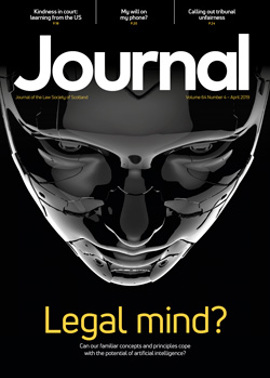Fairness v Convenience

A recent decision of the Upper Tribunal (UT) in a personal independence payment case, BV v Secretary of State for Work and Pensions (PIP) [2018] UKUT 444 (AAC), may have wide implications for tribunals in respect of other jurisdictions, especially including the quasi-adversarial jurisdiction of child support. A First-tier Tribunal (F-tT) decision was set aside because the tribunal had failed to act fairly, even though the original problems had arisen due to omissions by a clerk to the tribunal and by a tribunal caseworker.
BV, the appellant, applied for personal independence payment and was partly successful. She failed in her application for the mobility component and the enhanced daily living component. She appealed to the tribunal. On 13 February 2018 the tribunal generated a standard letter to the appellant intimating that the hearing of her case had been set for 12 March. It’s probable that the letter was not actually sent to her until a few days later due to the batch posting system in place at the tribunal offices.
On receiving the letter on 21 February she claimed she phoned the tribunal and asked that the hearing could be postponed because she had “another appointment” on that day. The UT judge, after directing the claimant to produce her phone records, found it apparent that she had indeed called the number on the appointment letter on that date in a 10 minute conversation. The call had not been noted, a matter that the UT judge found “unacceptable”.
On the same day she wrote to the tribunal: “To confirm our telephone conversation this morning I am sorry that I am unable to attend the hearing on 12 March because I cannot, yet again, cancel a previous appointment when everything is arranged for the same date. I would be grateful for a postponement and would need a taxi as I am unable to access public transport from my home.”
She did not in that letter explain the nature of that appointment. In fact, as became apparent at the UT, the appointment had been in relation to treatment of cancer which, by the time of the appeal, had become terminal.
The tribunal caseworker refused the request for postponement because (i) the claimant had not specified the nature of the other appointment; (ii) it was too late to arrange for another appeal to be heard by the same tribunal; and (iii) the tribunal “can make any appropriate decision or directions on the day of the hearing” without her presence because the relevant medical records had been received (emphasis added). The tribunal duly proceeded with the appeal in her absence and refused it.
Procedural unfairness
The claimant appealed to the UT on the basis that the decision to proceed in her absence was not fair, even though it might well have been procedurally competent. The UT allowed the appeal and remitted the case to a differently-constituted FtT to consider the case again. The UT emphasised to the claimant that the success of the appeal must be taken, not as an indication of the strength of the merits of her case, but rather of the fact that the decision had not been arrived at fairly.
The UT accepted that there must be a distinction between the kind of prior appointments which should take priority over a tribunal diet. For example, an appointment with a hairdresser should not be accepted as a reason to postpone. An appointment in respect of cancer care almost certainly should. The judge took the view that it was likely that in the claimant’s telephone conversation the nature of the medical appointment would have been discussed, and that in any event if there were to be any doubt about its importance the caseworker could and should have asked the claimant for clarification.
Rule 31 of the Tribunal Procedure (First-tier Tribunal) (Social Entitlement Chamber) Rules 2008 provides: “If a party fails to attend a hearing the Tribunal may proceed with the hearing if the Tribunal– (a) is satisfied that the party has been notified of the hearing…; and (b) considers that it is in the interests of justice to proceed with the hearing.”
Plainly the claimant had been notified. The question is whether it was in the interests of justice to go ahead. In the light of the whole facts it was clearly not in the interests of justice, but the tribunal failed properly to consider those facts. It may be that the facts about the claimant’s phone call and letter were not fully brought to the tribunal’s attention as it was taking the decision to proceed, but that did not absolve the tribunal of its responsibility.
Need for information
In discussing where the F-tT had gone wrong the UT judge said: “As a general rule, an inquisitorial tribunal that lacks relevant information should ask for it. That is particularly the case where, as here, a claimant has not previously been asked to provide the information and it is intended that the consequences of the tribunal’s ignorance should be visited on her.”
The judge criticised the caseworker’s “tendentious observation” that the claimant had not explained why the conflicting appointment was more important that the appeal, thus confusing urgency with importance.
As Jacobs puts it in the 13th edition of Child Support: the legislation, “the tribunal must ensure that, so far as practicable, the parties are able to participate fully in the proceedings… and this… incorporates the inquisitorial approach”. This is relevant to the conduct of the hearing itself, but it surely also includes the disposal of requests for postponement? The F-tT should have made its own enquiry into the reason for the request even if the clerk had not done so in writing – or perhaps especially where the clerk had not done so in writing. The vital matter is not whether or not the tribunal had sufficient information to enable it to come to a decision. The vital question was whether or not, in the circumstances of the case, it was in the interests of justice to do so.
ECHR aspect
There are broader aspects to this concept of fairness. The Human Rights Act 1998, by reference to ECHR article 6(1), contains an implied right of access to a court (or tribunal). There is no specific list of components of effective justice in civil cases, and there is certainly a margin of appreciation in the interpretation of the right, but the general principle under article 6(1) is clear. There was no rule impeding the claimant’s access to the tribunal in the BV case, but administrative action had that effect and that was no less serious for the claimant.
We can hope that a represented party would not suffer the injustice which we see in BV. An agent should be able to explain to the tribunal that the reason for non-attendance trumped the requirement for administrative convenience, but BV was not represented, and one can only wonder how many other claimants and parties in other (unreported) cases have suffered in the same way. And if a solicitor should have the misfortune to meet a F-tT taking an oppressive view of the rulebook, the BV case should be all the ammunition that the solicitor will need.
In this issue
- Time to promote shared care?
- Client medical records: a matter of right
- Search for the route to healing
- Rights after “same roof”
- Are you a qualified creditor?
- Reading for pleasure
- Opinion: Allan Jamieson
- Book reviews
- Profile: John Laughland
- President's column
- ScotLIS update
- People on the move
- Common law and artificial life
- FAIs: addressing the concerns
- Challenging times
- Shared humanity
- Cases of the paperless will
- How to manage your legal practice for success
- Fairness v Convenience
- Moorov then and now
- Personal licences: the uncertainty continues
- Is Airbnb use a planning matter?
- Insolvency Rules: a positive realignment
- IR35 compliance moves up the ladder
- “Best interests” in the balance
- Scottish Solicitors' Discipline Tribunal
- PSG tackles index-linked rent reviews
- Finding the right seat
- Public policy highlights
- Accredited paralegal update
- Events, and more, for members
- Accredited Paralegal Committee profile
- Second thoughts on executor declarations
- Client communication – a continuous journey
- Reflections from the Commission
- Love my tender
- Ask Ash






